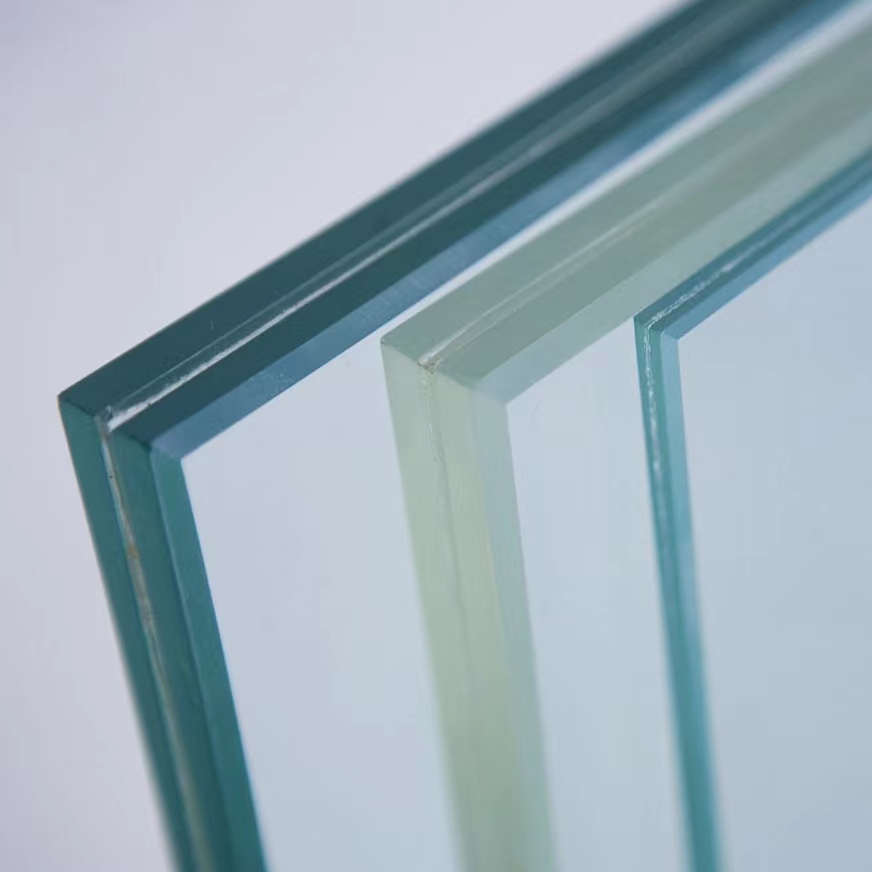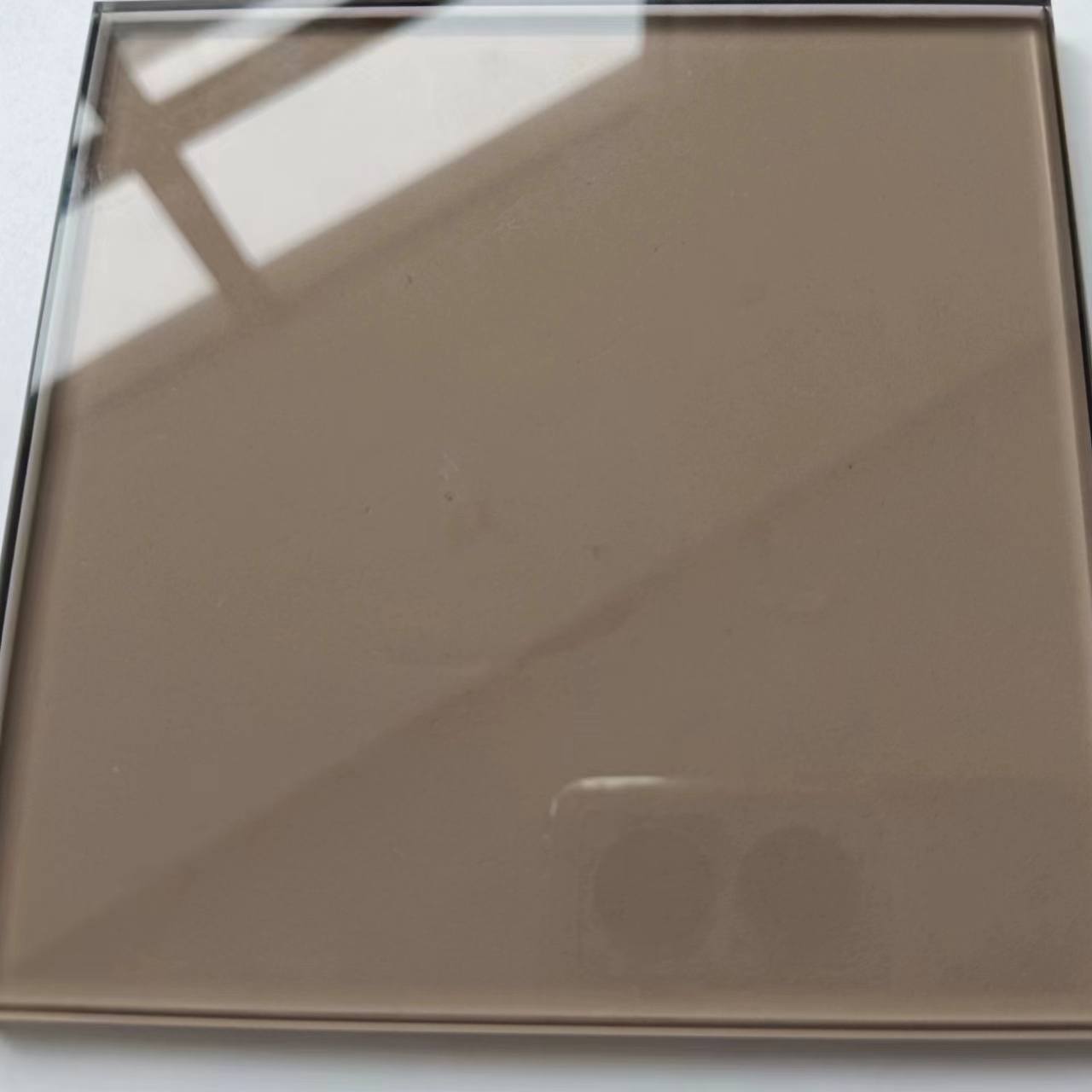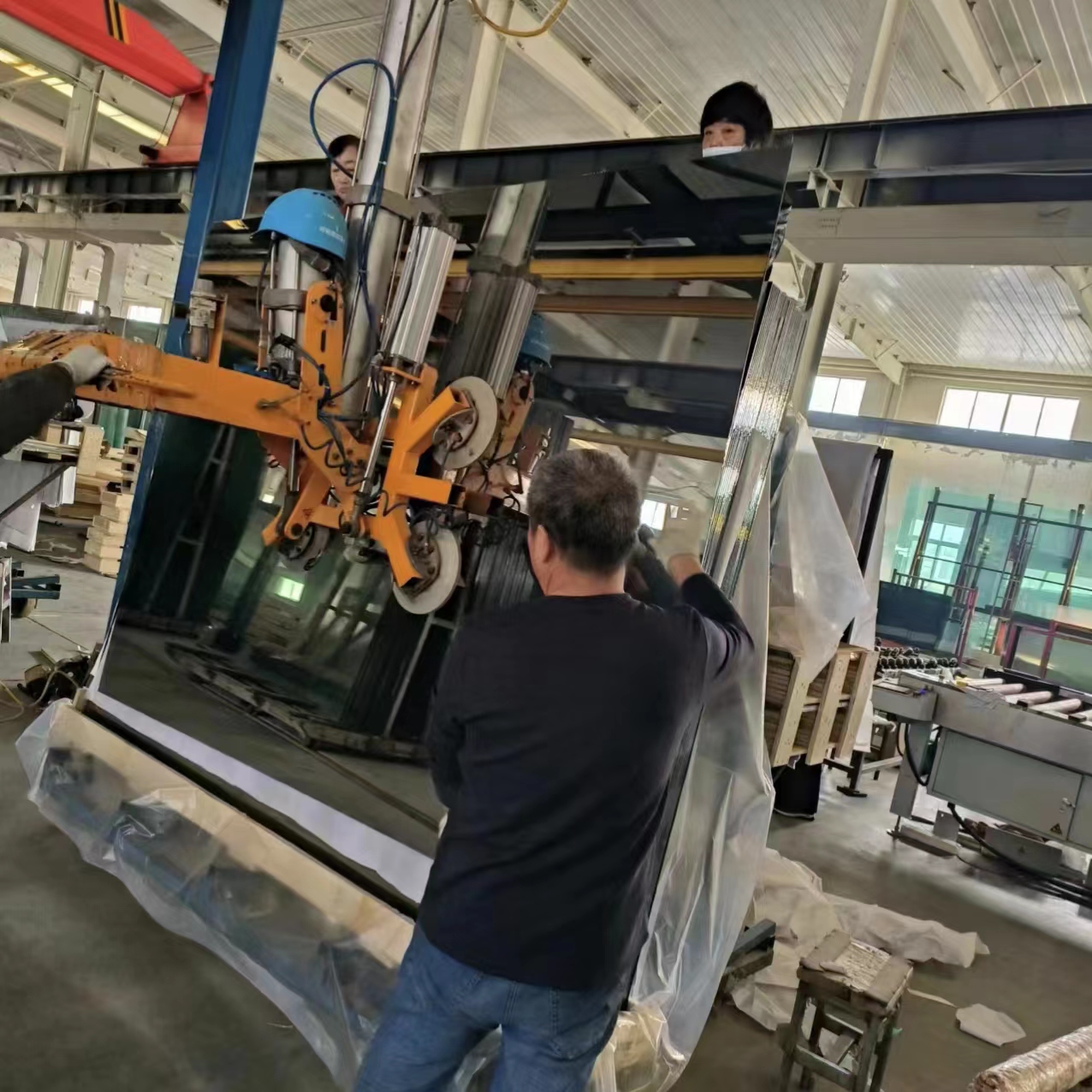Types of door and window glass
Tempered glass is a kind of strengthened glass obtained through high-temperature treatment. It has high impact resistance, wind pressure resistance, vibration resistance, thermal shock resistance and safety performance. Once broken, it will turn into small particles and will not break. It can be cut into large pieces and processed into any shape. Therefore, tempered glass is generally used in doors and windows, glass curtain walls, elevator doors, display cabinets, electronic equipment, etc.
2. Laminated glass
Laminated glass is made from at least two pieces of glass with a layer of PVB or Sentryglas® film sandwiched between them. It not only has excellent wind pressure and earthquake resistance, but more importantly, it will not form fragments even if it breaks during use, which can prevent people from being injured after the glass is broken. Therefore, laminated glass is mainly used in urban high-rise buildings, airports, banks, football fields and other places.
3. Single piece of clear glass
Single piece of clear glass is also called ordinary glass. It is a low cost-effective type of door and window glass. It is widely used in residential and some commercial buildings. It is usually used in ordinary windows and doors, which can allow sunlight to enter the room and provide vision and protection. Blocking natural views.
4. Laminated bulletproof glass
 Laminated bulletproof glass is made of multi-layer glass and polyethylene film interlayer. It has strong bullet resistance and protective properties, and can effectively prevent bullets, shrapnel, explosives and other dangerous items from causing harm to people and objects. Therefore, this kind of door and window glass is mainly used in high-security places such as military bases, consulates, and prisons.
Laminated bulletproof glass is made of multi-layer glass and polyethylene film interlayer. It has strong bullet resistance and protective properties, and can effectively prevent bullets, shrapnel, explosives and other dangerous items from causing harm to people and objects. Therefore, this kind of door and window glass is mainly used in high-security places such as military bases, consulates, and prisons.
2. Knowledge points about door and window glass
1. Glass thickness
When choosing glass doors and windows, you need to pay more attention to the thickness of the glass. Generally speaking, the thicker the glass, the better its impact resistance, sound insulation, heat preservation, flame retardancy and other properties will be. The thickness of the glass will vary depending on the use range of doors and windows. Ordinary glass can be selected from 3mm, 4mm, 5mm, 6mm, 8mm, 10mm, 12mm, 15mm, 19mm and other thicknesses.
2. Glass color
Glass is a transparent material composed of artificial agents and natural elements. It comes in a variety of colors, including transparent, light green, dark green, light blue, dark blue, gray, etc. The more common one is light green glass. The choice of glass color needs to be based on actual needs. For example: transparent glass can maximize indoor lighting, light green glass can reduce indoor temperature and have good heat insulation effect, and dark green glass can be used to block sunlight and conceal. Indoor items, etc.
3. Glass quality grade
The quality grades of door and window glass are divided into three grades: A, B, and C. Grade A glass is high-quality glass, has very high firmness and transparency, and meets safety requirements, so it is cost-effective: Grade B glass is usually used for doors, windows, It is not suitable for use in interior decoration such as exterior walls, but it should not be used in places such as high-strength precision instruments or high-rise buildings; C-grade glass is mostly used in relatively simple doors, windows, furniture accessories, and general decoration.
4. Energy consumption characteristics of glass
Due to the intensification of environmental protection issues, energy conservation has become an important topic nowadays. The choice of energy-saving glass can be determined based on its solar reflectivity, absorptivity, visible light transmittance, ultraviolet transmittance, thermal conductivity and other characteristics. Typical mainstream energy-saving glasses include: single silver glass, double silver glass, laminated low-e glass and insulated insulating glass. They are often used in doors, windows, glass curtain walls, skylights and other decoration places.
5. Glass surface treatment
According to the needs of different glass, surface treatment is often carried out on glass. For example: coated glass uses advanced coating technology to enhance the transmittance of the glass, reduce the refraction of the glass, and make the brightness of the sunlight more uniform; silicate treated glass can make the surface smooth and fresh, and enhance the strength and hardness of the glass; glass sandblasting processing Such treatment methods are not only convenient, beautiful and practical, but also reduce indoor air pollution.
6. Glass safety and aesthetics
The safety of glass doors and windows is undoubtedly extremely important. Failure to install qualified door and window glass can easily cause dangerous accidents, causing personal injury or property damage. Therefore, when purchasing door and window glass, the comprehensive safety performance level should be considered, and the appearance decoration should be safe, practical and beautiful to effectively ensure the safety of living and reflect the beauty.
YAOTAI is a professional glass manufacturer and glass solution provider include range of tempered glass,laminated glass, reflective glass,float glass,mirror,Door and window glass, furniture glass, embossed glass, coated glass,textured glass and etched glass. With more 20 years development,there are two produce lines of pattern glass,two lines of float glass and one line of restoration glass. our products 80% ship to overseas,All our glass products are strict quality control and carefully packed in strong wooden case,ensure you receive the finest quality glass safety in time.
Post time: Nov-15-2023














